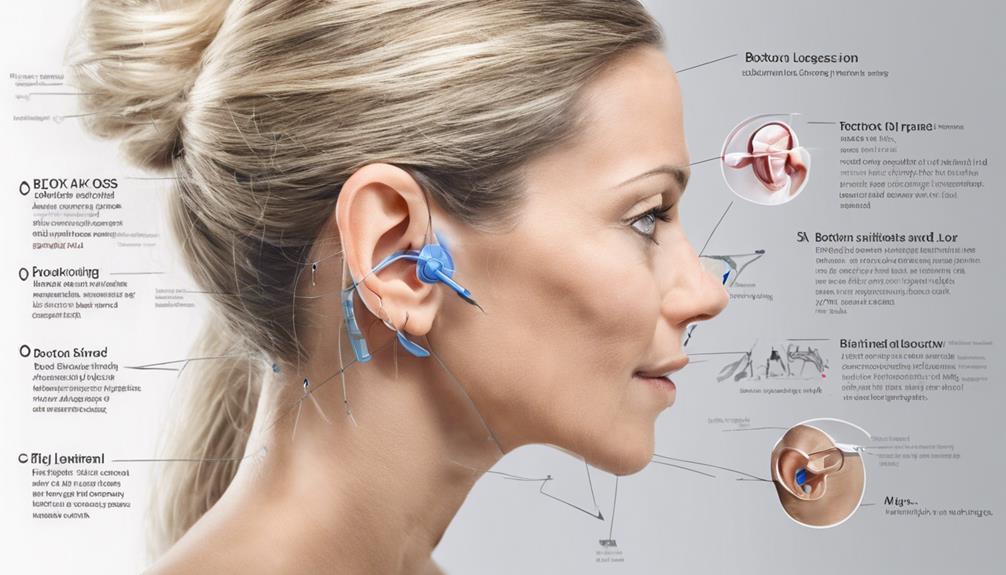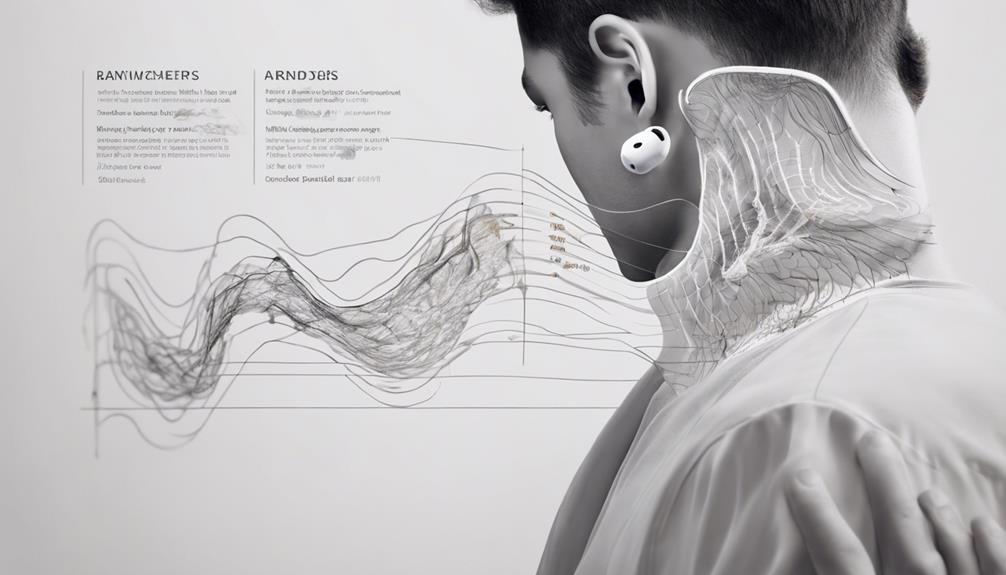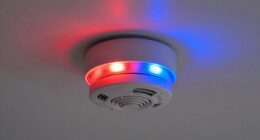Visualize a scenario in which a symphony is disrupted by a single incorrect note, causing a ripple effect of chaos throughout the entire piece.
Similarly, the intricate relationship between wisdom teeth and hearing loss can be likened to this delicate balance.
As we delve into the complexities of how wisdom teeth can impact our auditory health, a surprising connection unfolds, shedding light on potential consequences that may leave you questioning the well-being of your ears.
Key Takeaways
- Impacted wisdom teeth can lead to ear pressure, causing auditory system issues.
- Infections from wisdom teeth may result in earaches and inflammation affecting hearing.
- Misaligned wisdom teeth are associated with TMJ disorders, impacting auditory functionality.
- Prompt extraction of impacted wisdom teeth can alleviate ear-related symptoms.
The Connection Between Wisdom Teeth and Hearing
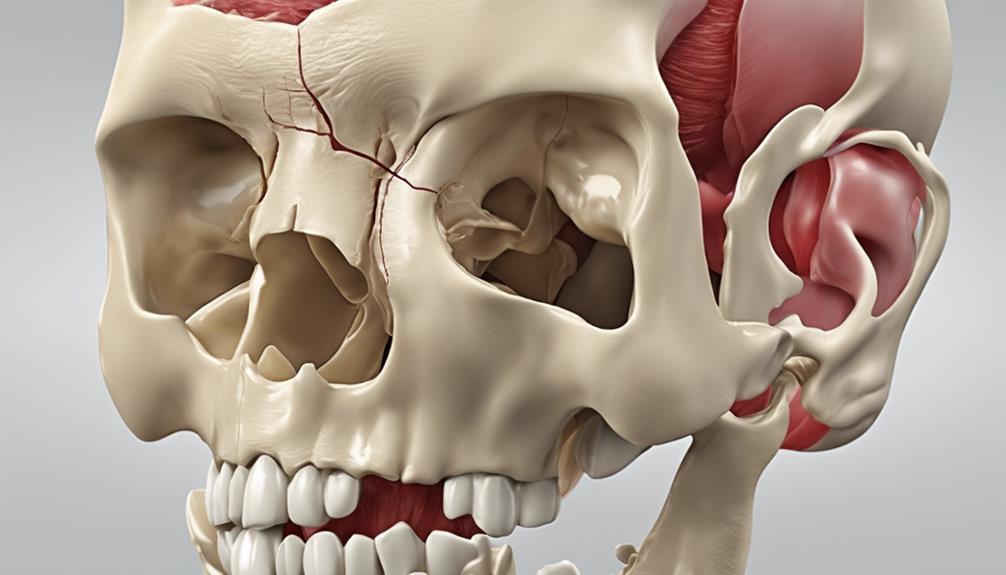
In examining the intricate relationship between wisdom teeth and hearing, we uncover compelling evidence of how impacted wisdom teeth can directly affect auditory health. Impacted wisdom teeth, by exerting pressure on nearby nerves and tissues, can lead to earaches and ear pain. This discomfort stems from the proximity of the wisdom teeth to the temporomandibular joint (TMJ), which plays a crucial role in the auditory system.
Additionally, infections originating from impacted wisdom teeth can result in ear pain and potentially contribute to hearing loss over time. The inner ear, a delicate structure responsible for transmitting sound signals to the brain through the auditory nerve, can be adversely affected by issues related to wisdom teeth.
Furthermore, misaligned wisdom teeth can lead to TMJ disorders, causing ear pressure and impacting hearing capabilities. Recognizing these interconnections is vital in understanding how addressing wisdom tooth problems, such as through wisdom tooth extraction, can positively influence overall auditory health and prevent potential hearing problems in the future.
Impact of Impacted Wisdom Teeth on Hearing
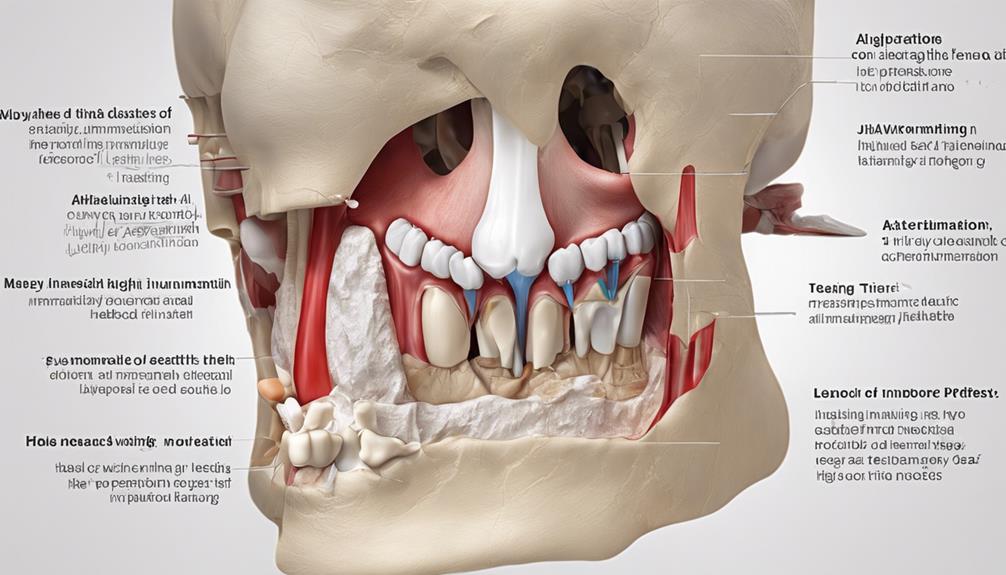
Examining the impact of impacted wisdom teeth on hearing reveals the intricate relationship between dental issues and auditory health. When impacted wisdom teeth exert pressure on surrounding structures, they can directly affect the ear, potentially leading to various ear-related symptoms and hearing issues. Some key points to consider include:
- Impacted wisdom teeth can cause ear pressure, affecting the delicate auditory system.
- Infections stemming from impacted wisdom teeth may result in earaches and localized inflammation in the ear region.
- Misaligned or impacted wisdom teeth are linked to temporomandibular joint (TMJ) disorders, which can impact hearing functionality.
- In rare cases, cysts or tumors associated with impacted wisdom teeth may affect the auditory nerve, contributing to potential hearing loss.
It is crucial to address impacted wisdom teeth promptly through extraction to alleviate ear-related symptoms and mitigate the risk of hearing issues. By understanding these connections, individuals can prioritize their dental health to safeguard their auditory well-being.
Wisdom Teeth and Potential Hearing Loss
Impacted wisdom teeth have been identified as a potential factor contributing to hearing loss through various mechanisms. When wisdom teeth are impacted, they can lead to ear infections due to the proximity of the teeth to the auditory system. The resulting inflammation can affect the delicate structures involved in hearing, potentially causing hearing difficulties. Additionally, misaligned wisdom teeth may exert pressure on surrounding tissues, impacting the auditory system and causing ear-related issues.
Complications such as temporomandibular joint (TMJ) disorders, which can arise from impacted wisdom teeth, may contribute to ear pain that can further lead to potential hearing problems. Referred pain in the ear region can also be a consequence of issues with impacted wisdom teeth, affecting overall hearing health. Furthermore, in rare cases, cysts or tumors associated with impacted wisdom teeth can impact the auditory nerve, potentially resulting in hearing loss. It's crucial to address wisdom teeth issues promptly to mitigate any potential impact on hearing.
Hearing Issues Linked to Wisdom Teeth

Considering the intricate relationship between wisdom teeth and the auditory system, it's crucial to understand the potential hearing issues linked to wisdom teeth. When wisdom teeth cause problems, they can impact not only dental health but also auditory function. Here are some key points to emphasize:
- Infections or inflammation from impacted wisdom teeth may lead to ear pain and potential hearing loss.
- Pressure on nerves near the ear due to misaligned or impacted wisdom teeth can affect auditory function.
- Swelling or cysts resulting from problematic wisdom teeth might impact the auditory nerve, contributing to hearing issues.
- Referred pain from wisdom teeth can manifest as ear discomfort or interfere with the hearing process.
These issues aren't to be taken lightly, as they can have a significant impact on one's overall health. Consulting a dentist promptly when experiencing ear symptoms related to wisdom teeth is essential to address and mitigate potential hearing loss concerns.
Hearing Health Implications of Wisdom Teeth
The relationship between wisdom teeth and hearing health warrants close attention due to potential complications that can impact auditory function. When impacted wisdom teeth are present, they can lead to various issues affecting the ears and hearing. Infections stemming from impacted wisdom teeth can result in earaches and, if left untreated, potentially contribute to hearing loss. The pressure exerted on the nerves near the ears by impacted wisdom teeth may manifest as auditory symptoms, further emphasizing the importance of addressing wisdom teeth problems promptly. Additionally, swelling and inflammation caused by issues with wisdom teeth can also influence the auditory system, underscoring the interconnectedness of oral and auditory health. Complications like temporomandibular joint (TMJ) disorders, often associated with misaligned wisdom teeth, can have implications for hearing health as well. Referred pain in the ear region can be a sign of underlying problems related to wisdom teeth that may affect hearing.
| Implications of Wisdom Teeth on Hearing Health | |
|---|---|
| Infections leading to earaches and hearing loss | Pressure on nerves near the ears causing auditory symptoms |
| Swelling and inflammation affecting the auditory system | TMJ disorders impacting hearing health |
| Referred pain in the ear region signaling wisdom teeth issues |
Frequently Asked Questions
Can a Wisdom Tooth Cause Hearing Loss?
Yes, a wisdom tooth can cause hearing loss. Impacted wisdom teeth can lead to ear infections, potentially resulting in temporary hearing issues. Pressure from these teeth can affect nearby nerves, leading to earaches and potential hearing problems.
Inflammation or infections caused by wisdom teeth can also impact the temporomandibular joint, which may influence hearing. Additionally, cysts or tumors linked to impacted wisdom teeth can impact the auditory nerve, causing hearing loss.
What Are the Side Effects of Getting Your Wisdom Teeth Out?
We've got the scoop on wisdom teeth extraction side effects. Did you know that over 5 million people in the US get their wisdom teeth removed each year?
After the procedure, expect swelling, pain, and discomfort at the extraction site. Temporary numbness in the lips or cheeks may occur, along with bleeding and jaw stiffness.
Following post-operative care instructions is key to minimizing complications like infection or nerve damage.
Why Experts Now Say Not to Remove Your Wisdom Teeth?
Experts now advise against routine wisdom teeth removal as recent studies indicate that asymptomatic wisdom teeth may not warrant extraction.
The American Association of Oral and Maxillofacial Surgeons states that removal is unnecessary when wisdom teeth are healthy and properly positioned. Unnecessary removal can lead to complications like nerve damage and infections.
Monitoring wisdom teeth through regular check-ups is recommended to assess the need for extraction on an individual basis.
What Kind of Problems Can Wisdom Teeth Cause?
Wisdom teeth can cause various problems, including pain, infections, misalignment, and complications like cysts or tumors. These issues can lead to ear discomfort, hearing loss, and affect the auditory system.
It's essential to address wisdom teeth concerns promptly to prevent potential complications that may impact hearing function. Consulting with a dental professional for evaluation and treatment can help manage these issues effectively.
Conclusion
In conclusion, the potential link between wisdom teeth and hearing loss is a complex issue that requires careful consideration and prompt action.
By addressing issues like infections, impacted teeth, and TMJ disorders associated with wisdom teeth, we can mitigate the risks of ear-related symptoms and hearing loss.
Remember, just as we should listen to our bodies, we must also pay attention to our dental health to ensure overall well-being.
Stay wise, stay hearing healthy.



